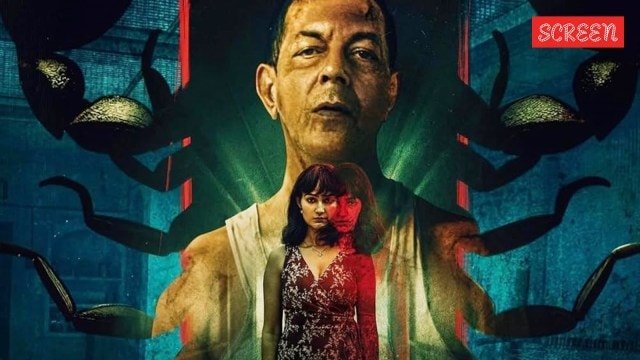In the realm of psychological horror, the new Amazon Prime series Khauf emerges as a compelling narrative that intertwines haunting specters with the very real horrors faced by women in contemporary society. Set against the backdrop of a working women's hostel in Delhi, the series captures the struggles of its characters, particularly Madhu, portrayed by Monika Panwar, who arrives in the city seeking a fresh start, only to find herself ensnared in a web of past traumas and supernatural occurrences.

The series, created by Smita Singh, consists of eight episodes, each approximately 40 minutes long. It opens with Madhu's arrival at the Pragati Working Women’s Hostel, a place steeped in mystery and fear. The hostel is home to several women, each harboring their own painful backstories, and it is here that the true essence of Khauf begins to unfold. Madhu's journey becomes a catalyst for exploring the unaddressed traumas that plague the residents, revealing how the past can haunt the present.
As Madhu settles into her new life, she quickly learns about the ominous history of Room 333, the site of a tragic incident involving a previous occupant named Annu. The other residents, including Rima (Priyanka Setia), Komal (Riya Shukla), and Lana (Chum Darang), warn her about the sinister presence that lingers there. Their warnings serve as a chilling reminder of the dangers that lurk not just within the walls of the hostel, but also in the outside world.
Rajat Kapoor plays the role of a mysterious hakim from Old Delhi, who preys on vulnerable women, adding another layer of menace to the narrative. His character embodies the predatory nature of some men in society, making the horror of Khauf resonate on a more personal level. The series does not shy away from depicting the harsh realities faced by women, including societal expectations and patriarchal violence.
The cinematography by Pankaj Kumar effectively captures the oppressive atmosphere of the hostel, using dim lighting and ambient sound design to create a sense of unease. This visual storytelling is complemented by Monika Panwar's powerful performance, which anchors the series. Her portrayal of Madhu's struggle with inner demons and external threats is both nuanced and relatable, drawing viewers into her emotional turmoil.
Despite its strengths, Khauf has faced criticism for its pacing and narrative structure. Some reviewers noted that the series sometimes spreads itself too thin, attempting to tackle numerous themes such as motherhood, mental health, and gender roles, which can dilute the horror narrative. While these themes are undeniably important, their inclusion occasionally muddles the emotional focus of the story.
Geetanjali Kulkarni's portrayal of a police constable searching for her missing son adds depth to the narrative, yet her subplot sometimes distracts from Madhu's journey. The dynamics between characters, particularly Madhu and her boyfriend Arun (Abhishek Chauhan), reveal the complexities of relationships shaped by trauma. Arun's character, while tender, also embodies problematic elements of male behavior that contribute to Madhu's struggles.
As the series progresses, it becomes clear that Khauf is not just about supernatural scares but also about the haunting realities of living as a woman in a patriarchal society. The show cleverly juxtaposes the spectral threats with the very real dangers posed by men, suggesting that sometimes the living can be far more terrifying than the dead.
In its final episodes, Khauf attempts to pivot from horror to socio-psychological realism, a shift that some viewers found jarring. While the exploration of internalized trauma and inherited pain is powerful, it risks undermining the horror elements that had been established throughout the series. Nonetheless, the emotional resonance of the characters' stories remains impactful, even as the supernatural thread feels somewhat abandoned.
Overall, Khauf represents a significant step forward in the Indian horror genre, moving away from traditional tropes and instead focusing on deeper, more meaningful narratives. It highlights the struggles of women while providing a chilling commentary on societal issues. With its strong performances, particularly from Monika Panwar and Rajat Kapoor, and its ambitious thematic exploration, Khauf is a series that invites viewers to reflect on the true nature of fear and the haunting legacy of trauma.
The series has garnered mixed reviews, with ratings ranging from 2.5 to 4 stars, reflecting its ambitious yet uneven execution. As it continues to stream on Amazon Prime Video, Khauf has already sparked conversations about women's safety and the psychological scars that linger long after the horrors have passed.
In a world where the ghosts of the past often overshadow the present, Khauf serves as a haunting reminder that the real monsters may not be the ones that go bump in the night, but the societal structures that perpetuate fear and trauma.







